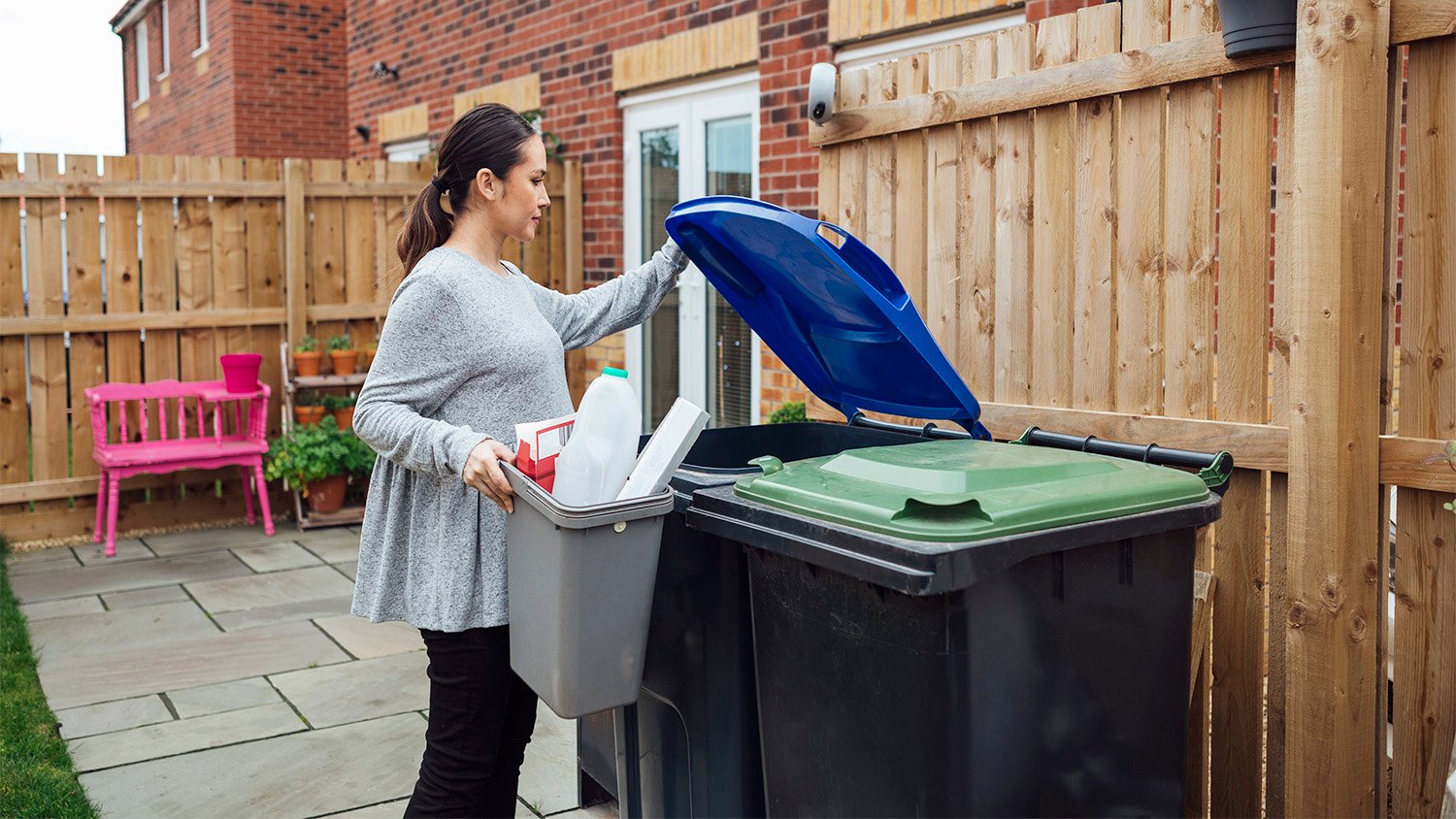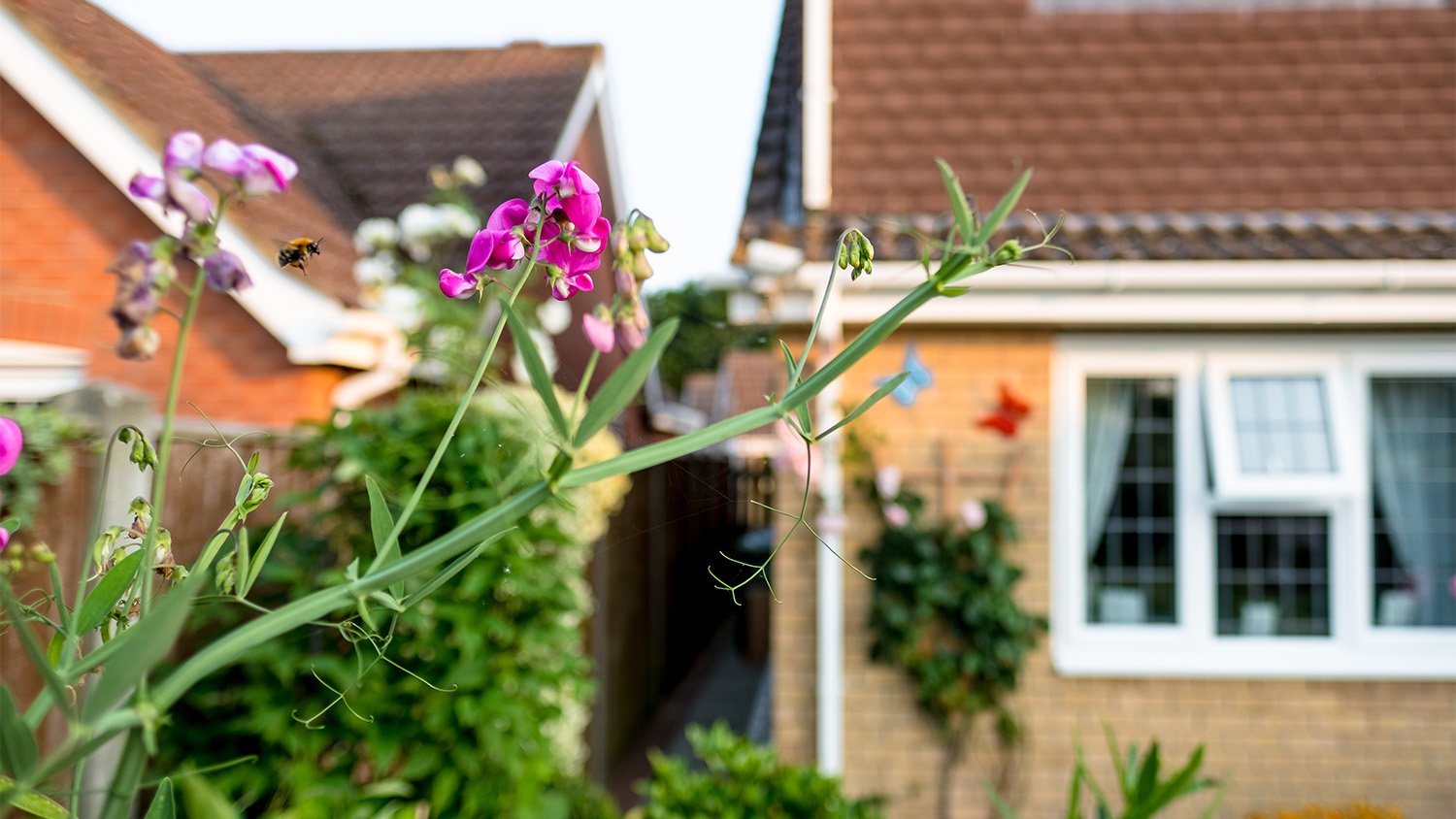
Whether you have bugs, bats, or rodents invading your home, you’ll want to contact an exterminator quickly. Find out how much pest control costs in Columbus, OH.
Stinging insects can be a pain—here’s how to get them to keep their distance


If the very mention of the word “wasp” is enough to send you on a one-way trip far, far away, you’re not alone. Stinging insects can be frightening and unpredictable, so it’s understandable not to want them anywhere near your space. Luckily, there are a few ways you can get them to buzz off without signing over the deed to your house.
One of your best defenses against stinging insects is to make yourself as unappealing as you can. Ditch the floral or sweet-scented body sprays and lotions, as these will make you delicious to nectar-loving bees, wasps, and hornets. It’s also a good idea to avoid wearing floral prints and bright colors for the same reason.
Bees strongly dislike the smell of citronella, eucalyptus, and peppermint essential oils. When applied directly to the skin, these oils can be irritating, so try soaking cotton balls and placing them around your home. Cinnamon is another smell that bees hate: Sprinkling ground cinnamon can help deter them or even get them to relocate a nest. These methods are best for prevention, not an active infestation, and be careful not to aggravate any of the stinging pests if you try them.
Keeping wasps and hornets away is all about removing temptation. If you have the option, avoid having fruit trees or blooming bushes close to your home. Overripe fruits on the ground are irresistible to wasps, while nectar from bushes presents yet another tasty temptation.
This doesn’t mean that you need to swear off nectar-rich plants for good—they’re still incredibly important for maintaining pollinator habitats, so you should keep them around if you can. Just keep them a safe distance from the areas where humans typically congregate.

Unfortunately, stinging insects love your homemade barbecue sauce as much as you do. Avoid leaving food out in the open during outdoor picnics and cookouts. Keep food in sealed containers and use lidded cups or bottles for beverages. Don’t forget to keep tight-fitting lids on your outdoor trash cans as well.
Wasps and other stinging insects can become even more aggressive when they feel threatened. If one enters your personal bubble, avoid swatting and other sudden movements, which could provoke an attack. Instead, remain calm and slowly walk away or wait for them to leave you alone.
Many wasps are only moderately aggressive—unless you’re near their nest, that is. If you’re spotting more stinging insects than usual, try to locate the nest ASAP, so you know which area to avoid. In particular, the paper wasp can be incredibly aggressive and territorial if they feel their nest is threatened, so it’s always best to keep your distance. Should you spot a nest, make sure your other family members are aware and don’t allow your pets near it, either. As a safety precaution, do not attempt to get rid of yellow jackets yourself. Hire a pro who has the proper training and safety gear.
Decks, eaves, attics, and even dryer vents can all make appealing places for stinging insects to build their nest. With that in mind, do a walkthrough around your home’s perimeter and note any trouble spots that could house a wasp nest or insect colony. Use caulk, expanding foam, or other sealing methods to close off potential nesting spots.

Education is the best weapon against fear. Identifying the different types of bees, wasps, and other stinging insects around your yard can help you learn what to expect from them. Not everyone you see buzzing around will sting you (or even be able to).
Some are actually beneficial insects that you should welcome to your garden. Honey bees, bumblebees, and other important pollinators should get treated with care—rather than resorting to lethal traps and extermination methods, have a local bee removal pro relocate the nest safely.
If you’re facing a wasp nest, it’s always best to let the pros handle it. Many varieties of stinging insects, such as yellow jackets, are social creatures who use pheromones to call their buddies when distressed. This leaves you vulnerable to an out-of-control swarm if you stir up trouble near a nest.
What’s more, many at-home methods aren’t always effective, especially at preventing insects from returning. Rather than risking your safety for a DIY method that isn’t guaranteed to work, call in a pest control company or a beekeeper who can relocate the nest for you.
From average costs to expert advice, get all the answers you need to get your job done.

Whether you have bugs, bats, or rodents invading your home, you’ll want to contact an exterminator quickly. Find out how much pest control costs in Columbus, OH.

Find out how much it costs to remove armadillos and stop them from coming back. Know how much to budget to humanely remove these pesky critters from your yard.

Discover the average ant exterminator cost, factors impacting pricing, and how to save. Get expert tips to budget for ant removal and protect your home.

Bed bugs are temperamental when it comes to temperature. Find out what temperature kills bed bugs for future reference.

Everyone deals with rodents at some point. Get to know the 5 signs you have mice and what to do next.

Bed bugs are infamous for sticking around. Calling a bed bug removal pro is the best way to solve this problem for good: Here’s who to contact.